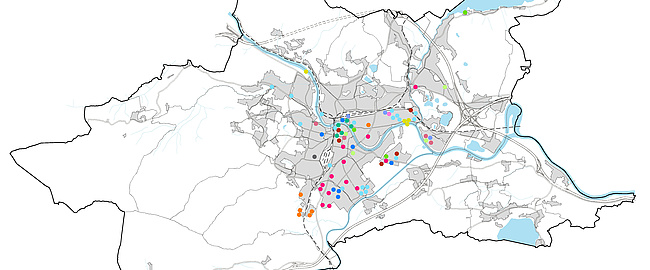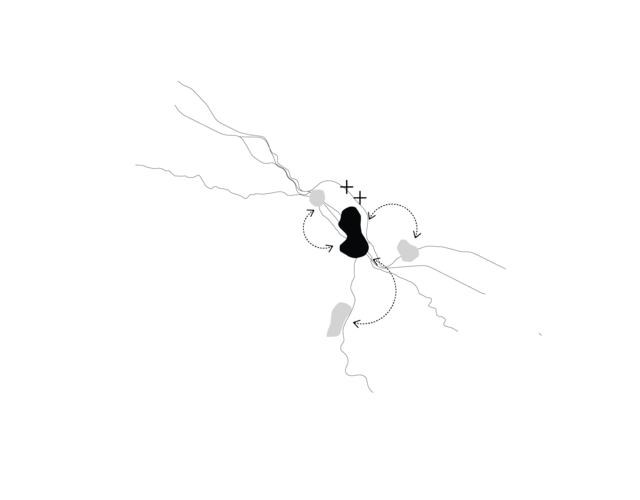STEK Villach
Urban Development Concept City of Villach 2015
03/2014 – 06/2015

© Institute of Urbanism
The revision of the City Development Concept 2000 (STEK 2000) of the city of Villach offered the opportunity to go new ways both in terms of content and process. On the one hand, the topic of "sustainable, energy-efficient urban development" should be more focused and coordinated with current or planned smart city initiatives and projects in Villach. On the other hand, stakeholder involvement and citizen participation were strategically considered from the outset and methodically implemented. Current topics and issues of the "city of the future", such as urban mobility, urban living and working, urban and socially compatible internal consolidation, the integration of renewable energy systems and new models of governance and participation, were given special consideration.After several expert workshops on the topics "Urban Development 2.0", "Urban Life", "Environment & Resources", "Economy & Employment" and "Urban Infrastructure", concrete recommendations for action were developed for the city of Villach.
Project Lead:
- Institute of Urbanism, TU Graz
Project partners:
- StadtLABOR Graz
- Institute for Process and Particle Technology, TU Graz
- Institute of Highway Engineering and Transport Planning, TU Graz
- Institute of Thermal Engineering, TU Graz
Sponsor:
- Magistrate Villach


